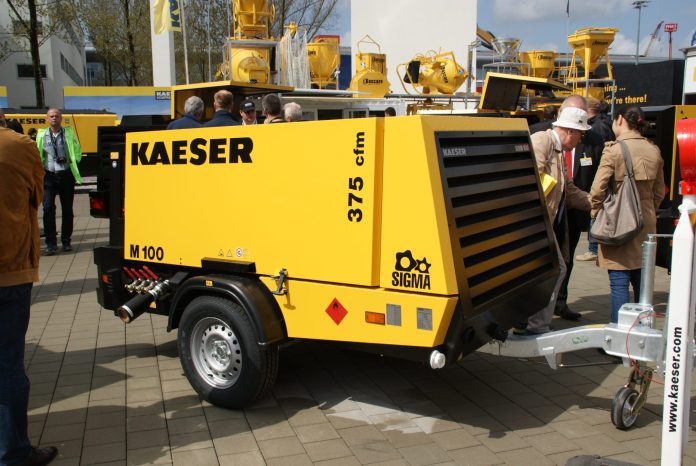Learn how the manufacturer worked with HPE, SAP to leverage IIoT
Kaeser Kompressoren is a German manufacturer and provider of compressed air systems and services. The company, which offers products, services, and complete systems for the generation, treatment, and delivery of energy in the form of compressed air, implemented an IIoT strategy in a move to reduce customers’ downtime and improve services.
Established in 1919 as a machine workshop, Kaeser currently has two manufacturing sites in Germany. The firm’s customers include manufacturers across all verticals, including oil and gas, transportation, defence, and construction. The company’s innovations include solutions to deliver predictive analytics and compression machinery that significantly reduces emissions.
The German firm explained that every time a production system goes down in an industrial process, it creates a troubling ripple effect. Entire production processes grind to a halt. According to Kaeser Kompressoren, the outage often disrupts factory output, which in turn upends production chains from supply through inventory and distribution. This also impacts the bottom-line with significant hits to revenue and to customer satisfaction. Other effects include unplanned costs incurred when service teams are deployed to troubleshoot the failure.
Kaeser Kompressoren was looking for a way to protect its customers from the damaging business consequences of unplanned parts failures and system outages in its installed compressor equipment. The company said it discovered a solution by leveraging the industrial internet of things (IIoT).
Because its legacy SAP application did not meet current Industry 4.0/industrial IoT requirements, the German firm upgraded to SAP HANA running on Hewlett Packard Enterprise (HPE) servers to implement this solution.
With the implementation of real-time machine analytics delivering faster insights into the health of its installed air compressors, Kaeser said it is in a position to help customers predict device failures and take preventive action.
Kaeser Kompressoren equipment features sensors to capture key environmental and performance data such as temperature, humidity, and vibration. The data is transmitted directly, and in real time, to a system that conducts ongoing predictive analytics to determine whether a part might be prone to failure. This allows Kaeser to identify and replace faulty parts during regularly scheduled maintenance — helping avoid unexpected and costly outages on customers’ production lines.
This IIoT implementation has resulted in a 60% reduction in unscheduled system downtime and costly emergency service visits, giving Kaeser a competitive marketplace advantage by enhancing its customer care service.
The ability to more accurately predict outage risk also allows Kaeser to efficiently manage inventory, resulting in annual savings of $10 million in break-fix costs, since the company can better predict what inventory should be. The savings frees capital for re-investment in business innovations and product improvements that create customer value, Kaeser said.
“We’ve gained faster, deeper, real-time insight, and better control of our global supply chain. As a result, we can optimize customer satisfaction by continuously improving the availability and efficiency of our compressed air equipment,” Falko Lameter, CIO, Kaeser Kompressoren, said.
“We’ve also used this new IIoT infrastructure to launch an air-as-a-service business model, helping us move costs from capex to opex.”

